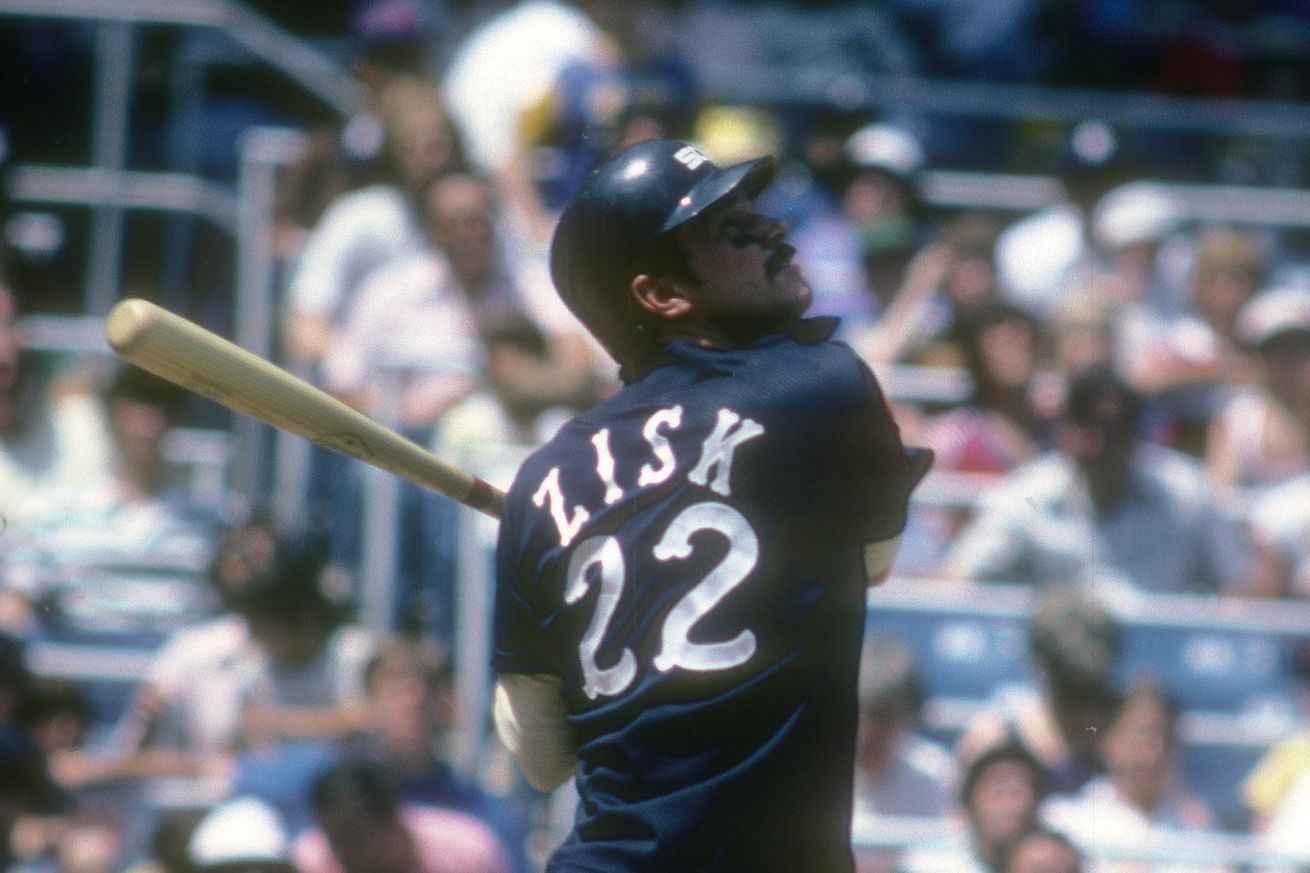Today in White Sox History: February 6

A quarter-century before Paulie and A.J.’s kielbasa connection fueled the South Side, a Polish Prince reigned
1949
One-year White Sox clubber Richie Zisk was born on this day, in Brooklyn.
Tasked with replacing the irreplaceable Roberto Clemente in Pittsburgh’s right field, Zisk managed a productive Pirates career, logging an .842 OPS and 137 OPS+ in addition to 15.7 WAR over essentially four full seasons.
He came to the White Sox in a Dec. 10, 1976 trade that netted the Pirates relievers Rich Gossage and Terry Forster. All three players would be entering free agency in 1978, so this was just a temporary-fill move on both sides, with the trio on a salary drive.
Zisk was the Polish Prince of the South Side Hit Men in 1977, with a team second-best 30 homers and a career-best 101 RBIs, finishing with an .869 OPS and 134 OPS+. He scored his first All-Star nod that summer, and finished 14th in MVP voting. Zisk’s 2.7 WAR was actually disappointing compared to his Pittsburgh production — but would stand as the best mark of his remaining career.
White Sox owner Bill Veeck made attempts to sign both of his free agent sluggers (Zisk and Oscar Gamble) after the 1977 season but never really was close to bringing Zisk back to the South Side: Richie inked a 10-year, $2,925,000 deal with Texas in early November.
While staying in Chicago might not have been the answer, leaving for the Rangers didn’t do Zisk’s career any favors. While putting up better-than-average OPS numbers for all but the final season of his career, Zisk compiled just 6.7 WAR over his final six years in baseball. He was traded after just three seasons to the Seattle Mariners, where he finished his playing days. The M’s ended up paying the final $1.1 million of Zisk’s lengthy deal with the slugger at home, retired; in the end, the two clubs paid Zisk almost $500,000 per WAR — not horrible, but more than the market rate for the era.
Zisk had better seasons, more team success, and made higher salaries outside of Chicago, but there is no doubt his most colorful season came with the South Side Hit Men in 1977.

